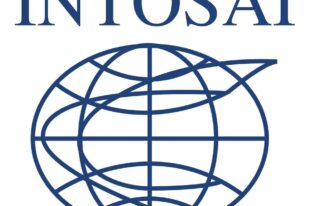
By Pierre Moscovici, First president of the French Cour des comptes, co-chair of the Forum of jurisdictional SAIs
Dear readers, dear colleagues,
I am proud to introduce this special issue of the International Journal of Government Auditing dedicated to jurisdictional SAIs, a topic that the French Cour des comptes proposed and I am glad and thankful that the Journal and its Vice-president, Jessica Du, endorsed it beyond our expectations.
About 25% of all supreme audit institutions (SAIs) represented in INTOSAI undertake jurisdictional activities. Most of them are found in the French-speaking, Spanish-speaking and Portuguese-speaking areas of the world. But, it’s an attractive model that extends beyond these linguistic and cultural spheres: Latvia, South Africa and Thailand have recently equipped their SAIs with a new competence and an appropriate organization to sanction the misuse of public money. Others, like Indonesia or Vietnam, are willing to obtain new jurisdictional powers or similar functions. This is also a model that can evolve: The French legislator has just radically reformed the system of liability for public managers, which had been in force for decades.
Although it is quite a significant proportion of all SAIs represented in INTOSAI, SAIs vested with jurisdictional powers are not as numerous as those who adopted the model of an independent agency attached to Parliament and in charge of auditing government accounts and evaluating public policy on behalf of the parliament.
Therefore, the nature of these jurisdictional SAIs, their missions and functions, may be widely ignored, woefully understood or underestimated, and this is the goal of this special issue to help you to better understand what they are and how they work and perform. We are also hoping to foster a better understanding of the benefits jurisdictional SAIs can provide to society. We have identified 7 essential benefits from the exercise of SAIs with jurisdictional functions, and they will be fully explained to you in this special issue.
What do we do?
A SAI has jurisdictional power when it has received the legal mandate to sanction a person on the grounds of an irregularity or damage, related to the use of public funds under the SAI’s jurisdiction and which can be imputed to that person, following contradictory-adversial proceedings.
SAIs with a jurisdictional mandate are characterized by diversity of form and procedure, and by the singularity of the national laws that determine their powers and organization. But their common purpose remains the same: to guarantee citizens the effectiveness of the principle of accountability, by enabling the SAI to act not only as an auditor, but also as a judge.
Mind it: the two functions of judgement and audit do not hinder each other but, on the contrary, complement each other.
Why do we do this?
Fundamentally, we believe that our jurisdictional powers give us an added-value, a strengthened independence that benefits all the missions carried out by the SAI, a power that can extend and supplement the auditor’s findings and recommendations. The SAI’s deep knowledge of the public bodies that are regularly subject to its audit and jurisdiction is an undeniable asset for identifying the most frequent irregular practices and sanctioning them itself or referring the public manager at fault to the competent authorities, if they are of a criminal nature. Consider it as if the jurisdictional function becomes the SAI’s sword arm, very useful in such cases.
We achieve our missions with and thanks to the upmost independence granted by the very nature of our jurisdictional function: by virtue of the jurisdictional status it implies and the guarantees it requires, jurisdictional SAIs enjoy greater independence for the accomplishment of this function. And this independence necessarily reflects on the exercise of the SAI’s non-jurisdictional tasks.
This added-value is therefore not only benefiting our SAIs but also, and moreover, to the society in its whole. Indeed, the effective exercise, in accordance with professional standards, of a SAI’s jurisdictional powers improves the governance of states, strengthens citizens’ confidence in the management of public funds, is a tangible sign of the accountability of public managers, and as a result, enhances the credibility and legitimacy of leaders.
How do we do it?
It is important to understand that jurisdictional functions are generally fulfilled with the help of a public prosecutor, usually responsible for what we call “initiating public action” (legal proceedings).
We, as jurisdictional SAIs, are performing our auditing tasks not only by strictly complying to the international auditing norms of INTOSAI, but also with the original culture of proof and verification, at the birth of the “adversarial” principle, and by following particularly demanding procedural rules and professional and ethical standards, guaranteeing integrated quality control.
These principles have been defined in the INTOSAI-P 50, thanks to hard work achieved within the Forum of jurisdictional SAIs, created in Paris in 2015, and are now part of the INTOSAI Core Principles. INTOSAI-P 50 is an integral part of the “INTOSAI Framework of Professional Pronouncements” (IFPP) and its 12 principles are intended to be used in conjunction with all the other professional positions: INTOSAI-P 50 does not contradict any of them.
On the other hand, INTOSAI-P 50 helps to fill a gap: it is the missing piece in a jigsaw made up of numerous professional positions in which the jurisdictional activity of SAIs were, up until now, mentioned without ever being defined.
Guidelines, meant to support SAIs with jurisdictional powers in developing or implementing the 12 principles set out in INTOSAI-P50, have been drafted by the Forum and might hopefully be soon officially approved by the Knowledge Sharing Committee (KSC).
Jurisdictional SAIs are determined to continue their joint efforts within INTOSAI and outside, to share their knowledge and exchange best practices, and to obtain full recognition of their specificity and benefits for society.
Convinced that they have something interesting to share with the INTOSAI community, jurisdictional SAIs are proud to present themselves to their peers throughout the world, via this special issue.
I hope you find it informative and useful.
– Pierre Moscovici






